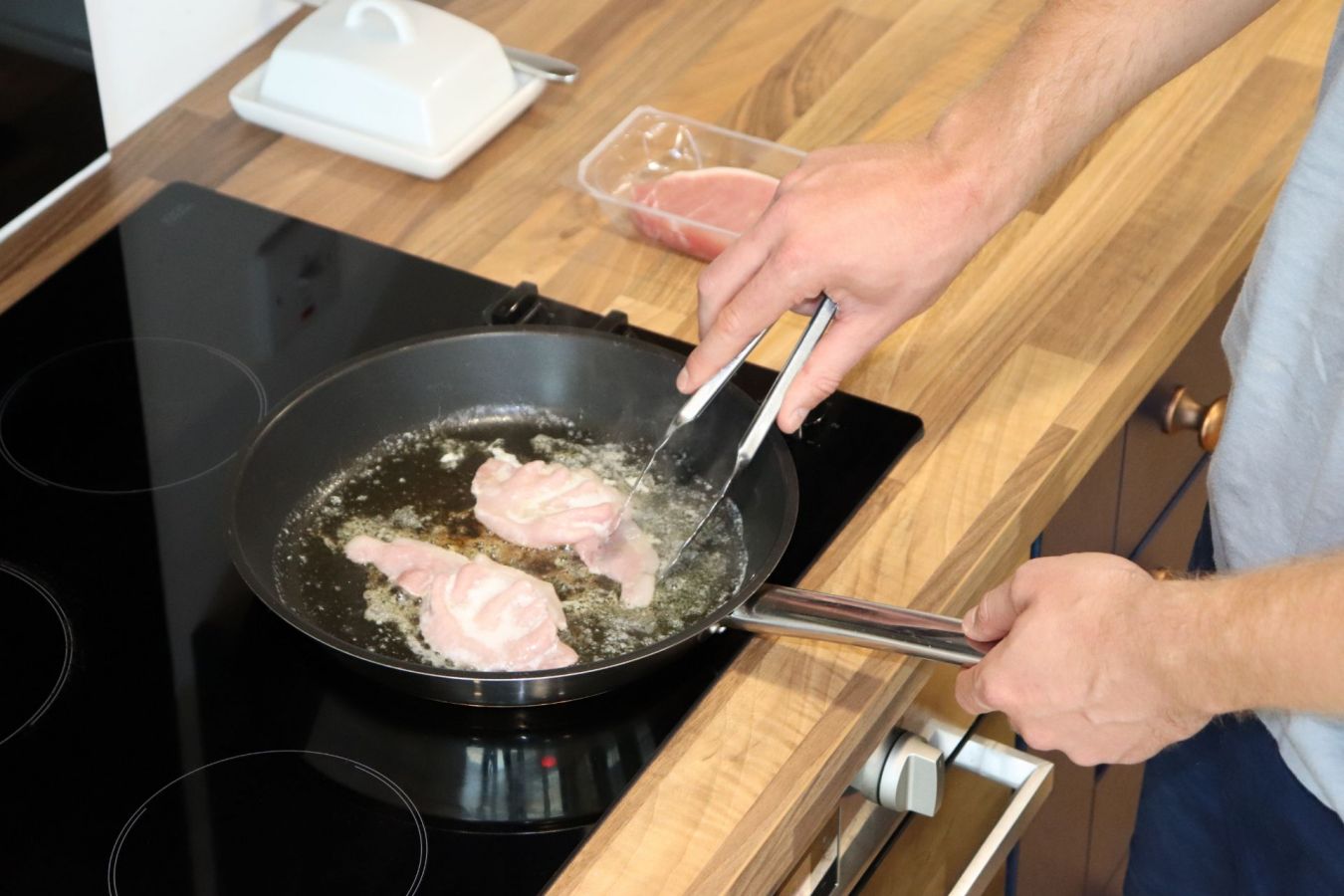
A comprehensive guide on how to dispose of your cooking oils at home
Monday 9th November, 2020Improper disposal of fats, oils and grease (FOG), is a sure-fire way of causing blockages in your home.
Unblocktober have created this handy and simple guide which explains how to correctly dispose of your cooking oils, to help you protect your drains and the environment!
You might have already been told that you shouldn’t pour FOG down your drains, but if you’re not too sure how to effectively dispose of the stuff. Well, we are here to help.
What’s the problem with disposing of cooking oil down the sink?
Pouring a little bit of oil down your sink may seem harmless, but the damage that causes is far from that.
Let’s delve down beyond our plughole…
Pouring FOG down your drains can cause blockages to form within your pipes. This can either be within your home drainage pipes, or even further down the system.
Fatbergs are a monstrous mass, which can be found in sewer systems. They are made up of a number of different things, such as wet wipes and solidified FOG.
One of the most notable fatbergs was found in Whitechapel, London. Lanes Group and Thames Water helped tackle the enormous blockage. It measured 250 metres long and weighed over 130 tonnes!
A recent study from Lanes Group found that 48% of the nation admitted to pouring fats, oils and grease down the drains.
The next time you sit down for your family Sunday roast, think of how you will dispose of the leftover FOG from the meal.
You don’t want to end up spending a fortune having to unblock your drains, when you could have easily disposed of your FOG safely.
What is the best way of disposing of FOG?
The problem with disposing of FOG is that it hardens quickly. If left for too long you can be stuck trying to scrape bacon fat from a frying pan and cause a big mess. However, if you act quickly enough you can ensure that the grease is put into one of the containers below and disposed of correctly.
There are a number of different methods to disposing of your FOG;
1. Use a paper egg carton. A paper egg carton is great because most are usually made out of a biodegradable material themselves, so when you pop them in the bin, it will naturally decompose in landfill.

2. A glass bowl – When you remove the pan from the heat, let the oil cool slightly, to not cause any harm to yourself, and then pour the FOG into the bowl and let harden. Then with a paper towel, scoop and remove the fat from the bowl and dispose of in your general household waste bin*.

3. There are also a number of alternatives on the market that help to catch FOG. One of these being the Grease Hero, these drain guards help to trap and absorb discarded cooking oil which can then be disposed of in the bin.
*Alternatively you could save your leftover FOG and make your own DIY bird feed fat balls.

What should I do if I accidentally put grease down the drain?
Firstly, don’t worry, we all make mistakes. To reduce the amount of damage that may occur there are a number of steps that you can take.
1. You’re going to need some very hot water, boil the kettle and pour it down the sink, or alternatively pour leftover pan water from pasta or vegetables down the plughole.
2. Then pour a mixture of 1 part vinegar and 1 part baking soda down the drain, this will fizz and bubble and help to prevent the FOG sticking to your pipes – this is a natural process so no harsh chemicals will enter our waterways!
3. Repeat if necessary.
If you follow these steps you will have reduced the chances of your sink clogging, however if you’re worried that your sink may be clogged here are four signs that you might have a problem
1. Water draining slowly
2. Gurgling sound
3. Bad odour
4. Sinking backing up
To ensure that your drain is in tip top condition, we recommend cleaning your sink with the vinegar and baking soda method at least once a month. Leftover veg/pan water can also be pour directly into the sink to help clear bits of FOG and substances lingering in the pipes. Or if needed, give Lanes Group a call for a free quote.
Unblocktober is the world’s first month-long national campaign and awareness month to improve the health of our drains, sewers, watercourses and seas - driven completely by the British public.

